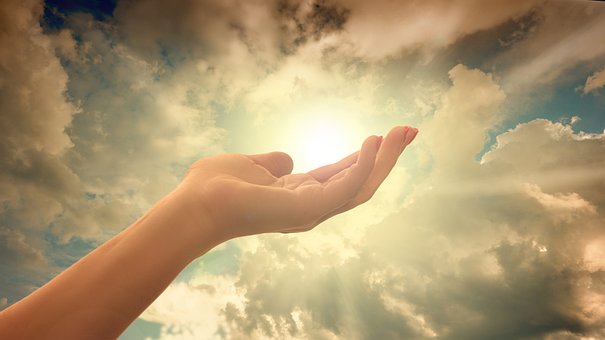What is fundamentally new in today’s science is the continuity between the cosmos and us. From the particles that appeared during the first moments after the big bang to the neuronal structures allowing us to exercise intelligence, elementary processes have constantly modified the real world according to the same interactions between the elements present. Gravitational attraction, electromagnetic forces, nuclear forces, acting the same today as fifteen billion years ago. At least this is a hypothesis that nothing, apparently, can contradict. Admittedly, the diversity of the current outcomes of the interplay of these forces highlights the introduction of randomness into the unfolding of events. A pebble and a human brain are at incomparable levels of complexity. They are, however, the culmination of two stories, both a few billion years long, which had the same starting point, whose stages resulted from the same rules of the game, but which changed in multiple occasions.
Everything in our Universe is “related”. How then to claim to be more respectable than any object? A human being is an agglomerate of elements. Why should this agglomerate – whether its elements be organs, cells, molecules, atoms – be more respectable, more inviolable than another?
It is a question of finding a border which allows, without too much arbitrariness, to separate the human being from the cosmic whole which produced it.
This border could be the possibility given to everyone to escape from this cosmos by being able to think about it and, little by little, to decipher it. That is to say, to participate in the scientific process. This may seem like a very difficult role to assume for this activity. But what else to offer? The arguments in favor of this function of science are not lacking.
It belongs that the members of our species are the only ones capable of this performance which is the collective construction of knowledge. What distinguishes us from other animals is not given to us by nature, in the form of a genetic endowment, but is only given to us by nature. She behaved like an illiterate mother who, without understanding the significance of her gesture, offers an encyclopedia to her child. A day comes when, helped by those he meets, he manages, like Champollion with the Rosetta stone, to decipher it, to discover the meaning behind the words, to build his vision of the world, in particular his vision of the part of the most enigmatic world: himself.
Thus appears consciousness, an arrow whose starting point and endpoint are confused.
Human specificity therefore does not result from the shape of such an organ or the structure of such a protein. It resides in the ability to construct a person from the individual produced by nature. However, this construction can only progress thanks to encounters with others.
We see here a reversal of the causal arrow: the human community was made by men, but each man becomes himself thanks to his immersion in this community. A “feedback loop” was set up: individuals created the society of men, this society transformed them into people.
This observation that scientific reflection now offers us had been anticipated by affirmations whose comparison may seem unexpected. Thus, in the nineteenth century, this reflection by Karl Marx: “The essence of humanity is not an abstraction inherent in the individual taken apart. In its reality, it is the whole of social relations”, or, more than two thousand years ago, that of Jesus: “When you are reunited, I will be among you. The meaning is the same: it is belonging to humanity that makes us human.
This evidence leads to the establishment of a society where the “others” are never considered as obstacles, but always as sources.
The morality that can be built on this basis has nothing “natural” about it. However, it is not arbitrary and can become universal, since it is developed with reference to science, which is universal. It can lead to collective support in the face of the difficulties of our societies. This adhesion can only be obtained by the establishment of a new form of democracy, the democracy of ethics.
To build it, the best engine is wonder, provided you don’t get the wrong object. We must be surprised by our own presence. Yes, the cosmos amazes me, it endlessly reveals its treasures to me, but it’s my gaze on them that magnifies it. The real wonder is that I am able to contemplate it. It is my presence at the heart of this existence that will give its beauty to the blue sky of our dreams and aspirations.
Let’s enter into science, let’s dance, turn, waltz, to properly establish the requirement of respect and become a being capable of admiring the tranquility of twilight, of getting drunk on the beauty of roses, of being moved by a look . Let’s invent the language of science, because being a scientist means daring to be familiar with the Universe!
Texts published in the Courier section engage only their authors. In this space, L’Orient-Le Jour offers its readers the opportunity to express their ideas, their comments and their reflections on various subjects, provided that the remarks are neither defamatory nor offensive or racist.
What is fundamentally new in today’s science is the continuity between the cosmos and us. From the particles that appeared during the first moments after the big bang to the neural structures allowing us to exercise intelligence, elementary processes have constantly modified the real world according to the same interactions between…
We wish to give thanks to the author of this write-up for this awesome content
A science to found the requirement of respect
Take a look at our social media profiles and other related pageshttps://nimblespirit.com/related-pages/

